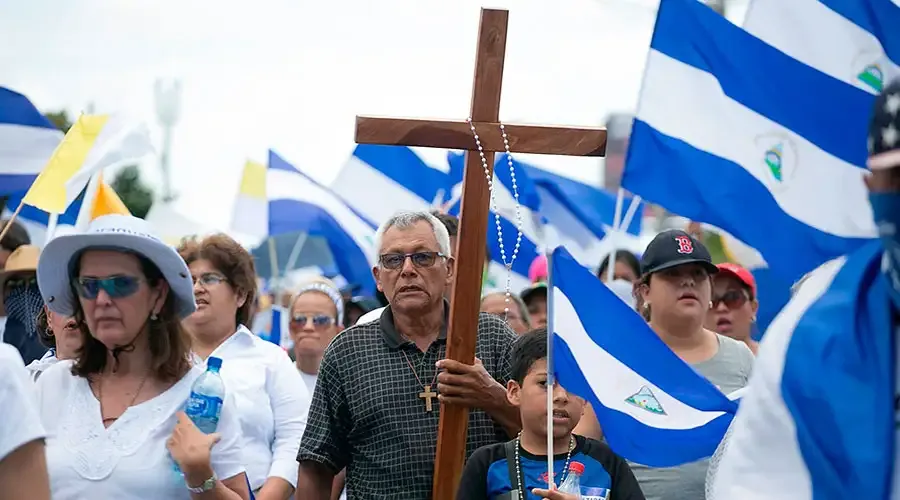The Vatican embassy, called a nunciature, has been run by a chargé d'affaires since early March 2022.
The pope’s comments about Nicaragua’s dictatorship were published on March 10 by the Spanish-language news outlet Infobae.
In the interview, Francis spoke about Nicaragua’s Bishop Rolando Álvarez, who was sentenced to 26 years in prison by Ortega’s dictatorship last month. He said: “It is something out of line with reality; it is as if we were bringing back the communist dictatorship of 1917 or the Hitler dictatorship of 1935.”
“They are a type of vulgar dictatorships,” he added, also using the Argentine word “guarangas,” meaning “rude.”
“With much respect, I have no choice but to think that the person who leads [Daniel Ortega] is unstable,” Francis said, according to the interview transcript.
Speaking of Álvarez, he said: “Here we have a bishop in prison, a very serious man, very capable. He wanted to give witness and did not accept exile.”
The pope said last month during his Sunday Angelus that the bishop’s imprisonment had deeply grieved him.
Álvarez, an outspoken critic of Ortega’s regime, was charged with being a “traitor of the homeland” on Feb. 10.
Ortega’s government has in recent years detained, imprisoned, and likely tortured numerous Catholic leaders, including at least one bishop and several priests. His government has also taken action to repress Catholic radio and television stations, and driven Catholic religious orders, including the Missionaries of Charity, from the country.
Ortega, who leads Nicaragua’s socialist Sandinista National Liberation Front party, has governed Nicaragua continuously since 2007 along with his wife, Rosario Murillo, who is now the vice president. The regime has variously been accused of corruption, voter fraud, imprisoning critical dissenters and journalists, and committing violent human rights abuses against the people of Nicaragua.
This story was updated at 7:35 a.m. MDT on March 13, 2023.








